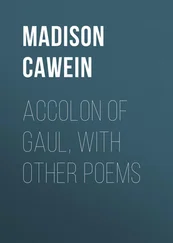R. Peake - Marching With Caesar - Conquest of Gaul
Здесь есть возможность читать онлайн «R. Peake - Marching With Caesar - Conquest of Gaul» весь текст электронной книги совершенно бесплатно (целиком полную версию без сокращений). В некоторых случаях можно слушать аудио, скачать через торрент в формате fb2 и присутствует краткое содержание. Жанр: Исторические приключения, на английском языке. Описание произведения, (предисловие) а так же отзывы посетителей доступны на портале библиотеки ЛибКат.
- Название:Marching With Caesar: Conquest of Gaul
- Автор:
- Жанр:
- Год:неизвестен
- ISBN:нет данных
- Рейтинг книги:3 / 5. Голосов: 1
-
Избранное:Добавить в избранное
- Отзывы:
-
Ваша оценка:
- 60
- 1
- 2
- 3
- 4
- 5
Marching With Caesar: Conquest of Gaul: краткое содержание, описание и аннотация
Предлагаем к чтению аннотацию, описание, краткое содержание или предисловие (зависит от того, что написал сам автор книги «Marching With Caesar: Conquest of Gaul»). Если вы не нашли необходимую информацию о книге — напишите в комментариях, мы постараемся отыскать её.
Marching With Caesar: Conquest of Gaul — читать онлайн бесплатно полную книгу (весь текст) целиком
Ниже представлен текст книги, разбитый по страницам. Система сохранения места последней прочитанной страницы, позволяет с удобством читать онлайн бесплатно книгу «Marching With Caesar: Conquest of Gaul», без необходимости каждый раз заново искать на чём Вы остановились. Поставьте закладку, и сможете в любой момент перейти на страницу, на которой закончили чтение.
Интервал:
Закладка:
Chapter 10- Revolt in Gaul
Returning to Gaul, we found it in a high state of unrest. Despite Caesar quelling one possible source of revolt with the death of Dumnorix, there were still many Gallic chieftains harboring similar designs. They were chafing under Roman rule, and Caesar’s absence in Britannia only gave them the encouragement and opportunity to resume plotting. Another factor leading to the discontent was the fact that the harvest that year was exceptionally poor, so from a Gallic point of view, it was going to be hard enough to sustain their own people, let alone feed eight hungry Legions with all the attending mouths attached to it. Understanding this, Caesar ordered that for the first time, the army be widely dispersed around the whole of Gaul. Adding to Caesar’s own troubles was news of the death of his daughter Julia, an event that the army observed with great sorrow, such was the affection we held for our general. She had been married to Pompey, and while we did not know it at the time, this was the beginning of the end of the friendship that had sustained Caesar and Pompey against all their political enemies. At that moment, it was just another tragic event in a life full of such tragedies, and soldiers, hard as they may be, are not without feeling. Also, some of the men had begun having children of their own, so they felt the loss more acutely than callow youths like myself. More pressing, from our perspective at least, was the prospect of a hard winter, yet before we could worry about that, the Gauls had other plans for us.
It was late autumn when we were dispersed; the 10th marching with Labienus once again, this time to a camp about 60 miles northeast of Duroctorum, setting up on a substantial island in the middle of our old friend the Axona River. Gaius Fabius took the 8th to winter in the lands of the Morini, Cicero took the 7th to watch the Nervii, setting up camp on the Sabis. Three Legions, the 9th, 11th and 12th, were stationed in the area of Samarobriva, along with five Cohorts of the 13th. The remaining Cohorts of the 13th and the 14th, under the combined commands of the former Tribune, now Legate Sabinus and another Legate Cotta were sent to Atuatuca, in Eburone territory. It was this dispersion whereby Caesar unwittingly helped fan the flames of rebellion, giving the Gauls their first opportunity to strike a blow at Rome that would not instantly lead to their annihilation. First to feel the wrath of the Gauls was the 13th and 14th, where Ambiorix, the chief of the Eburones, waited just long enough for the Legions to build their winter camp, get settled in and begin to believe all was well before he attacked, laying siege to the camp. As we would learn later, this was no random move by a single chief eager to win notoriety with his people; Ambiorix was urged to the attack by none other than Indutiomarus, the chief of the Treveri, who promised to rise in revolt at the same time. Caesar had dealt with Ambiorix before, so he sent two men that served as his emissaries in his past dealings with the chief, Gaius Arpineius and Quintus Junius, and they accompanied Sabinus and Cotta in the event that there needed to be some form of dealings with Ambiorix. Ambiorix used this familiarity, first by asking for a truce whereby he could parley with our commanders, then once the truce was granted, Ambiorix relied on this relationship with these two men to offer an honorable way to end the siege, swearing that if the troops surrendered, they would be allowed to leave unharmed. Apparently, there was a heated argument between Sabinus and Cotta on whether to accept the terms; Ambiorix also claimed that within two days, a large force of hired Germans would be at the camp and once they arrived Ambiorix would be unable to forestall the inevitable slaughter. He further claimed that he was being forced to lead this attack by his people, at the risk of death if he did not agree. Ambiorix insisted that was the only reason he did so, recognizing how much he owed to Caesar for his position and for the return of his own son from bondage by another tribe, which Caesar had arranged. One thing in which all the Roman commanders apparently agreed was the fact that a tribe like the Eburones, who had never been considered one of the more belligerent tribes, were unlikely to do this on their own. With this offer from Ambiorix in hand, Sabinus and Cotta ordered a council of war, which the Tribunes and Centurions attended. One Tribune, Arunculeius by name, was obviously made of sterner stuff than some of his comrades, arguing against accepting terms and pointing out the security of their position, along with the fact that they already repulsed the first assault on the camp with heavy losses to the enemy. On the opposing side was one Quintus Titurius, a friend of the emissary Arpineius who countered that, as all agreed, Ambiorix would not take such an action unless he was sure of the outcome. One of the reasons he could be sure, Titurius argued, was his belief that Caesar had already left the country and returned to the Province. Besides, if they chose to stay, the only way to find out who was right and who was wrong would be to fight and probably die at the hands of Germans, who were still angry about the thrashing given to Ariovistus a few years before. Finally, he asked, if we do not leave here under the terms promised by Ambiorix, what was the plan of the Legates? What stratagem did they have in their bag of tricks to get them out of this mess? The result was that Sabinus landed on the side of Titurius, much to the fury of Cotta, and supposedly the argument raged for multiple watches. It must be said here, for the sake of truth, that the troops loathed Sabinus, who was a political appointee and a Legate in name only. The earlier successes of Sabinus, it was said around the fires, were more despite his presence than because of it. Unfortunately, of the two he was senior, and if there is one thing that is ingrained in a tiro from the first day, it is obedience to orders, instantly and without any hesitation. Therefore, word was sent that the terms offered by Ambiorix were accepted, and arrangements were made for the 14th Legion, along with their unlucky comrades of the 13th, to march out of the camp the next day.
What happened is well documented, and is an unfortunate blot on the honor, not just of Caesar but the whole army. I can only imagine the glee with which Ambiorix heard about the acceptance of his terms, while I also think there might have been some disbelief that his trap was entered so easily. Now all that remained was for it to be sprung, and it was, in the form of an ambush in the first wooded area into which the Legion marched. About two miles from the camp, just as the Legion descended into a ravine, the jaws of the trap snapped shut in the form of a very large force that appeared not only on both flanks, but at the rear of the formation once the baggage train entered. From what was extracted under torture from Eburones there at the time, apparently the only senior officer that acquitted himself with any honor was Cotta, who had apparently resigned himself to this happening. Titurius, by every prisoner's account, yielded to panic, running every which way trying to put Cohorts into position, all to no avail. Finally, Sabinus ordered the abandonment of the baggage train and the Legion formed into the orbis¸ as sure a signal to a ranker that all is essentially lost as waving a white flag. For some men, this gives them the courage of the damned, and they fight like heroes of Troy; for other men, they meekly await what they believe to be the inevitable in their death. Such resignation can infect a Legion quickly, and I am as sure as an old soldier can be that this was part of the problem. Enough of the men of the 14th reacted in the former manner to not only impose a high cost on the enemy, but to force the Eburones to adopt a new tactic. Ambiorix ordered his men to move a safe distance away before continuing the assault by missiles, using both javelins and slings. It was in this manner that the second phase of the battle, if such can be called began, with men continuing to fall. Making things even more difficult were some of the greedier Legionaries dashing from the formation to run to the baggage train in an attempt to retrieve their valuables, only to be inevitably cut down. Finally, Titurius spotted Ambiorix in the formation and asked for a parley, which was granted. Ambiorix proceeded to tell him that he had no objections, but the Romans would have to approach where Ambiorix was standing, instead of meeting halfway as was normal. Titurius went to ask Cotta if he wanted to go along to parley with Ambiorix, yet Cotta, despite already being wounded, resolutely refused to place himself at the mercy of Ambiorix. He was the smart one; Titurius convinced Sabinus, and most shamefully to those of us in the ranks, some of the senior Centurions to go along with him. When they approached Ambiorix, they were ordered to drop their weapons, which they did, whereupon Ambiorix had them slaughtered where they stood. Now without many of the senior leaders, the Legion was doomed, and I have little doubt that they knew it.
Читать дальшеИнтервал:
Закладка:
Похожие книги на «Marching With Caesar: Conquest of Gaul»
Представляем Вашему вниманию похожие книги на «Marching With Caesar: Conquest of Gaul» списком для выбора. Мы отобрали схожую по названию и смыслу литературу в надежде предоставить читателям больше вариантов отыскать новые, интересные, ещё непрочитанные произведения.
Обсуждение, отзывы о книге «Marching With Caesar: Conquest of Gaul» и просто собственные мнения читателей. Оставьте ваши комментарии, напишите, что Вы думаете о произведении, его смысле или главных героях. Укажите что конкретно понравилось, а что нет, и почему Вы так считаете.












